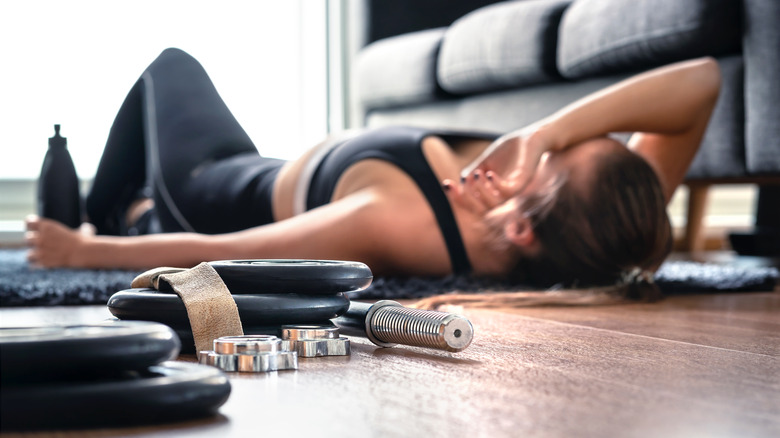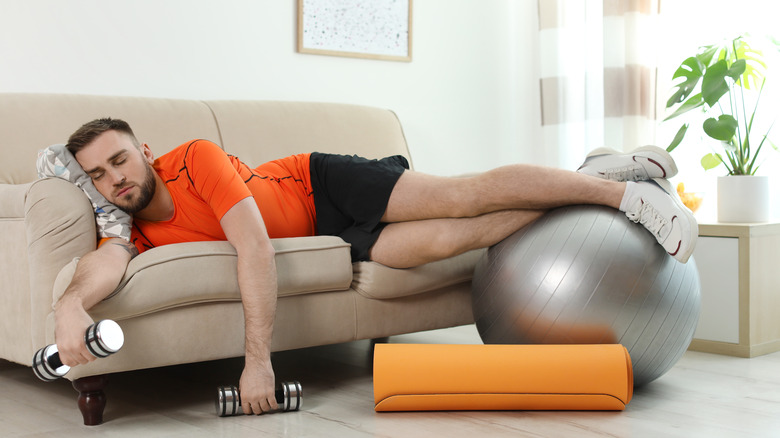Is Exercising Better Than Sleeping In When You're Tired?
Exercise and sleep are important components in how we keep ourselves healthy both mentally and physically. In fact, previous studies have shown that exercise can actually lead to better sleep (via Johns Hopkins Medicine).
Regardless, we all have days where we want to hit "snooze" and skip the gym for more sleep. This leads to contemplating what is more important for our health — sleep, or working out? Luckily, researchers at the University of Sydney School of Health Sciences have tackled that question for us with their study published in June's British Journal of Sports Medicine.
The study found that although prioritizing both sleep and physical activity is your best bet, boosting levels of physical activity can help compensate for any negative impacts from not getting enough sleep (via Eating Well).
Researchers analyzed data from 380,055 participants from the UK Biobank research group. They were aged around 55 years old, and 55 percent were women. The study broke up participants into groups of high, medium, low and no moderate-to-vigorous physical activity based on public health guidelines. Sleep quality was ranked and categorized by chronotype, duration, insomnia, snoring and daytime sleepiness.
Study shows symbiotic connection between physical activity and sleep
After following up 11 years later, researchers found that the poor sleep group that engaged in no moderate-to-vigorous physical activity had the highest mortality risks compared with the high physical activity and healthy sleep group. The study also found that the common traits for those who tended to be more physically active and healthier sleepers were that they were younger and female, had a "normal" body weight, and had no reported mental health issues, according to Eating Well. Additionally, this group was less sedentary, ate more fruits and vegetables, didn't smoke, and drank less alcohol.
So if you decide your body needs more sleep, don't fret too much about skipping the workout. The findings point to it not necessarily being in our best interest to sacrifice sleep for early morning workouts, as the two go hand in hand for positive health benefits. While the study showed any level of physical activity above the minimum recommendations eliminated most of the poor sleep and mortality impacts, sleep is needed for workout recovery.
"While staying active is a crucial part of a healthy lifestyle, try getting the extra rest and working in movement throughout your day," EatingWell's assistant nutrition editor Jessica Ball, M.S., RD, noted in an article about the study. "Exercise won't be as beneficial for your body if you have racked up a significant 'sleep debt.'"


